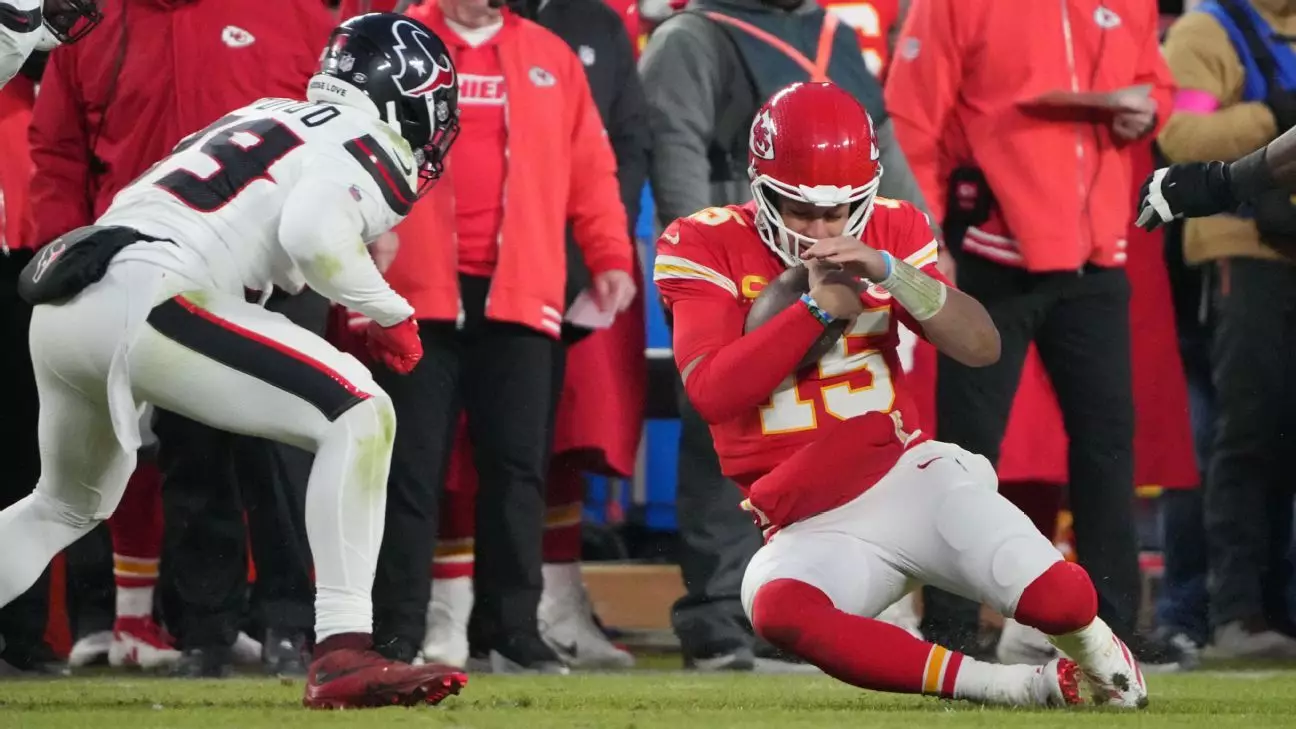The implementation of replay assist in the NFL has sparked debates about the fairness of officiating, particularly concerning high-profile players like Kansas City Chiefs quarterback Patrick Mahomes. While the intention behind replay assist is to refine decision-making on the field, questions persist regarding its role in influencing game outcomes and player treatment. As we look forward to potential expansions in replay assist, it is vital to dissect its current application and consider the implications for the sport.
Introduced in 2021, replay assist was designed to empower NFL officials by allowing for enhanced oversight in specific situations during games. This technology enables designated officials to intervene when clear and unambiguous footage is available to rectify mistakes concerning fouls, penalties, and other key plays. Starting in 2024, the NFL plans to extend this assistance to encompass a broader spectrum of circumstances, particularly focusing on the interactions involving quarterbacks.
This evolution could introduce significant changes in how penalties are officiated, including actions such as quarterback slides, out-of-bounds hits, and the rare instances of intentional grounding. The focus on refining the officiating process is commendable, yet it carries the risk of introducing additional confusion and inconsistency if not handled correctly.
Recent situations involving Mahomes have brought replay assist into sharp focus. During a playoff game against the Houston Texans, he executed a slide after scrambling out of the pocket, only to receive a 15-yard penalty due to unnecessary roughness from the defense. ESPN analyst Troy Aikman scrutinized the call, arguing that it undermined fair play, suggesting the need for a reevaluation of how these instances are governed.
Aikman’s criticism, alongside enthusiastic debates among fans, raises critical questions about whether certain players might receive preferential treatment when it comes to officiating. While Mahomes himself refuted claims of receiving excessively favorable calls, the persistent scrutiny surrounding his status inevitably creates a perception of bias, both for and against him, warranting a closer look at how replay assist might transform the game.
The potential expansion of replay assist touches on critical aspects of player safety and fair competition. When the league seeks to refine the rules around penalties involving quarterbacks, it simultaneously confronts a fundamental tension: the balance between protecting players, especially star quarterbacks, and ensuring that the game maintains its competitive integrity.
By incorporating additional parameters for replay assist, the NFL may find it challenging to draw definitive lines—leading to further discord between players, officials, and fans. A rigorous and transparent approach is essential to maintain the sport’s credibility. It is also important to ensure that any changes do not lead to over-officiating, where players feel they cannot engage in their roles without the constant specter of undue interference.
As the NFL competition committee gathers annually to discuss rule modifications, the focus on replay assist will be pivotal in shaping the future of officiating in football. There is an expectation for discussions to initiate on how best to implement these expansions, alongside debating their efficacy and fairness across all positions, not just quarterbacks.
The committee must engage with feedback from players, coaches, and fans alike to develop a comprehensive and fair set of officiating standards. They must recognize the potential for replay assist to either enhance the game or introduce confounding elements that could alienate fans or provoke further disputes among players and referees.
The expansion of replay assist represents an opportunity for the NFL. However, it has the potential to reshape how the game is played and viewed by millions. Striving for objectivity through enhanced officiating can fortify the integrity of the competition, but only if it is executed with care and consistency. As the NFL approaches the 2024 season, fans will be watching closely. The involvement of every stakeholder in this process is crucial; only through collaboration and transparency can the league hope to achieve a fairer, more equitable standard of play.


Leave a Reply